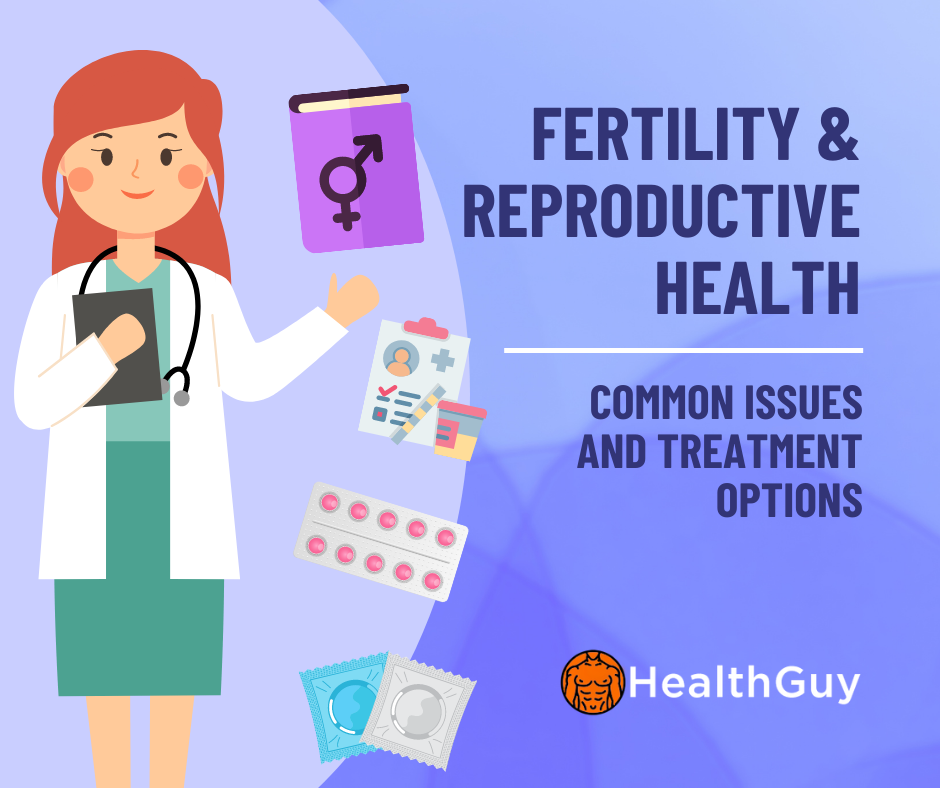
Fertility and Reproductive Health: Common Issues and Treatment Options
Fertility and reproductive health are essential for the continuation of human life. Any issues related to these can significantly impact a person’s well-being, relationships, and quality of life. Fertility refers to the ability to conceive and carry a child to term, while reproductive health encompasses the overall health and functioning of the reproductive system, including the uterus, ovaries, fallopian tubes, vagina, cervix, and testes. Several factors can affect fertility and reproductive health, such as age, lifestyle, genetics, and underlying medical conditions.
Infertility:
Infertility is a common issue that affects both men and women. Infertility is defined as the inability to conceive after 12 months of regular unprotected sexual intercourse. Infertility affects approximately 10-15% of couples worldwide.
The causes of infertility can vary, but the most common causes of infertility in women are ovulatory disorders, tubal blockages, endometriosis, and pelvic adhesions. In men, infertility is often caused by low sperm count or quality, erectile dysfunction, or hormonal imbalances.
Infertility treatment options depend on the underlying cause. For women with ovulatory disorders, ovulation-inducing medications such as clomiphene citrate or gonadotropins may be recommended. Intrauterine insemination (IUI) can also help increase the chances of pregnancy by placing sperm directly into the uterus. In vitro fertilization (IVF) is another option for couples who have not had success with other treatments. IVF involves fertilizing the eggs with sperm in a laboratory and then transferring the resulting embryos into the uterus.
For men with low sperm count or quality, treatments may include medication, surgery, or assisted reproductive technologies such as intracytoplasmic sperm injection (ICSI), which involves injecting a single sperm directly into an egg.
Menstrual Disorders:
Menstrual disorders are common in women and can include irregular periods, heavy or prolonged bleeding, and menstrual pain. These disorders can be caused by hormonal imbalances, uterine fibroids, polycystic ovary syndrome (PCOS), or endometriosis.
Treatment options for menstrual disorders depend on the underlying cause. Hormonal therapy, such as birth control pills or progesterone, may be recommended to regulate periods. For women with heavy bleeding, a surgical procedure such as endometrial ablation or hysterectomy may be recommended. Endometrial ablation is a procedure that destroys the lining of the uterus, while a hysterectomy involves the removal of the uterus.
Sexually Transmitted Infections (STIs):
Sexually transmitted infections (STIs) are infections that are spread through sexual contact. Common STIs include chlamydia, gonorrhoea, herpes, and human papillomavirus (HPV). STIs can cause a range of symptoms, including pain, itching, and discharge, and can lead to serious health complications if left untreated.
Treatment options for STIs typically involve antibiotics or antiviral medications, depending on the specific infection. It is essential to practice safe sex and get regular STI testing to prevent the spread of infections and protect your reproductive health.
Reproductive Cancers:
Reproductive cancers can affect both men and women and include cancers of the cervix, uterus, ovaries, testicles, and prostate. These cancers can cause symptoms such as abnormal bleeding, pelvic pain, or swelling.
Treatment options for reproductive cancers depend on the type and stage of the cancer. Treatment options may include surgery, radiation therapy, chemotherapy, or a combination of these approaches. It is crucial to get regular cancer screenings to detect and treat reproductive cancers early.
Other Reproductive Health Issues:
Other reproductive health issues can affect both men and women and include conditions such as polycystic ovary syndrome (PCOS), endometriosis, and uterine fibroids. These conditions can cause a range of symptoms, including menstrual irregularities, pain, and fertility issues.
Treatment options for these conditions depend on the severity of symptoms and the individual’s goals for treatment. Hormonal therapy, such as birth control pills, may be recommended for women with PCOS or endometriosis to regulate menstrual cycles and manage symptoms. Surgery may be recommended for women with uterine fibroids or severe endometriosis.
It is essential to prioritize reproductive health and seek medical attention for any concerning symptoms. Maintaining a healthy lifestyle, including regular exercise and a balanced diet, can also help support reproductive health. Additionally, practising safe sex and getting regular screenings and check-ups can help prevent and detect reproductive health issues early.
